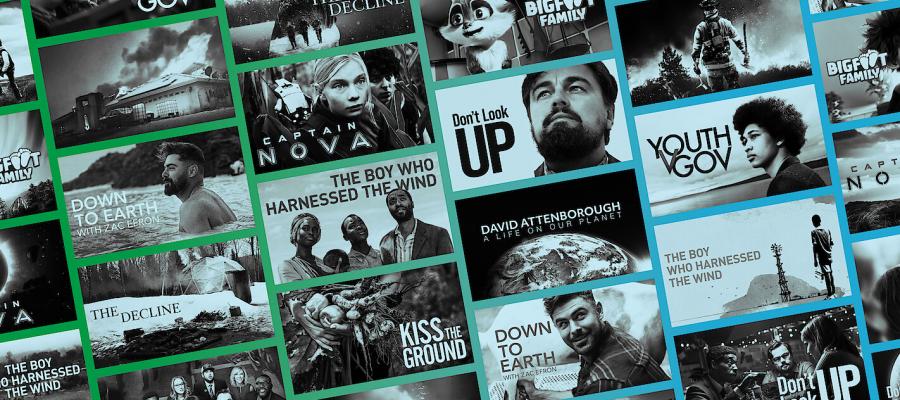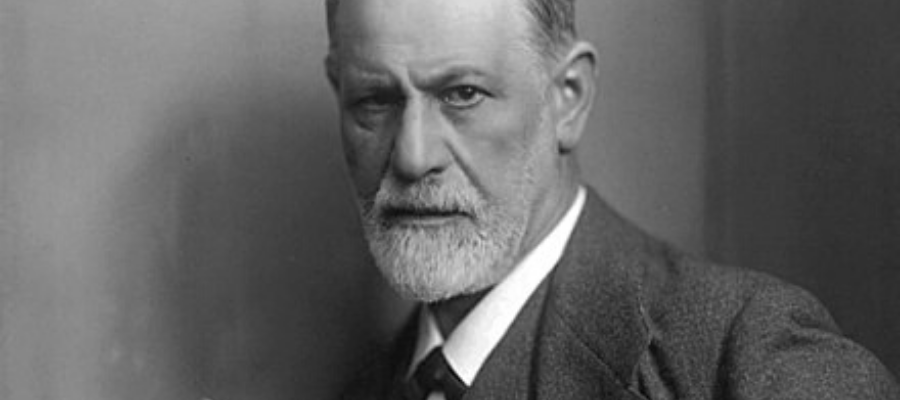Persons, Community, and the Akan
25
Oct 2021
Is your inner life what makes you, you? Or is your identity about connecting to your community? How can West African philosophy help us think about the self? This week, we’ll be thinking about Akan Philosophy, specifically its conception of personhood. Akan philosophy is a centuries-old tradition from West Africa of discussing big topics like the meaning of freedom, and the most ethical way to live, and what it means to be a person. Like any group of philosophers, Akan philosophers have plenty of debates and disagreements among themselves. But when it comes to being a person,...
Read morePhilosopher of Anarchism
13
Nov 2024
Emma Goldman is a fascinating—and controversial—figure. She lived in my places: from Lithuania and Latvia to New York, London, Berlin, Spain, not to mention the Soviet Union, where she was deported in 1919. J. Edgar Hoover called her “one of the most dangerous anarchists in America.” But was that was a fair assessment? In 1892, Goldman conspired in the attempted murder of a factory owner, and years later in her autobiography she doubled down, writing that “the end justified the means.” But what she was actually for deported for was encouraging people not to sign up to fight in World War I....
Read more[VIDEO] Is it OK to Kill Animals for Food?
07
Apr 2017
According to a poll conducted in 2016, approximately eight million US adults are vegetarian. The reasons that many vegetarians pose for their meatless diet vary, often including environmental or health benefits. However, what about the simple reason that killing animals for food is not morally justifiable? If the entire planet could survive eating only a vegetarian diet, are we justified in killing millions of animals a year? In this episode of Wireless Philosophy, Tyler Doggett of the University of Vermont tackles this question. If we do not approve of killing other humans for...
In Praise of Reading
25
Jul 2017
We modern humans read all sorts of things and for all sorts of reasons. Reading newspapers helps keep us informed about what’s happening in the wider world. We read letters, or once did, from those still dear, but no longer near. Lovers separated by oceans and continents once routinely bared their hearts to one another in passionately composed letters, recieved and read with great delight. As humankind’s ability to travel the world increased, reading took on ever greater importance as a means of cementing and maintaining bonds of family and friendship. These days the written word...
Read moreThe Culture Wars: Phase 2?
11
Nov 2015
Here is a conjecure. We are by now deep into a new phase of the so-called "culture wars." The current battles in the culture wars are ased partly on competing and apparently irreconcilable perceptions over the extent of what some see as genuine oppression and others see as merely so-called "oppression." I was prompted to this conjecture partly by recent events on various university campuses and partly by some advice I ran across on a Unitarian-Universalist website about how to be effective allies to those with marginalized identities. They offered 20 or 21 recommendations -- some of them...
Read moreBeauty that Haunts
15
Mar 2005
Alexander Nehamas was an excellent guest. Thanks so much to Alexander for appearing on the show this week. I want to respond further to one of Alexander's central claims. He says that beauty has to do with what he calls "the promise of happiness." To find something beautiful is to perceive in it a promise of happiness. He even says that when you have exhausted what a thing has to offer you in the way of happiness, you will no longer find it beautiful. This line does explain a lot about what I'll call positive beauty, for lack of a better term. I'm not...
Read moreWorking for Faith
12
May 2019
I had a terrific time discussing religious “beliefs”—or religious credences, as I call them—with Josh and Ken this past Sunday. For those of you not familiar with my research, I’ve been pushing two theses for several years now—the second more controversial than the first. 1. A great many religious “beliefs” are processed differently in people’s minds (that is, psychologically) from garden-variety factual beliefs. So I call them by a different name: religious credence. For example, a religious credence that Jesus is alive functions differently in people’s minds from a...
Read moreWhy Be Moral?
11
Jan 2015
This week we're asking the question: Why Be Moral? But what kind of question is that? Morality is a good thing. Immorality is a bad thing. A person should always do good things and never do bad things. Doesn't everybody agree? Well, judging by people's behavior, not necessarily. But we also have to be careful not confuse 'ought' and 'is'. People do behave immorally. But they shouldn't. Everybody knows that - at least in their heart of hearts. That implies that immoral behavior is irrational or insincere or hypocritical or...
Read moreNarrative Burnout
15
May 2020
When our lockdown started here in the Bay Area, I remembered periods of past depression and isolation, and I reminded myself about the power of narrative. When I’ve felt the worst, fictional stories have come into my life as special escapes, as sources of interest and catharsis and feeling that I couldn’t always find elsewhere. I was so sure, in mid-March, that stories would save me again. I could binge Parks & Recreation, and catch up on all the movies I haven’t seen, and read my way through a bottomless stack of novels. Instead of burning through stories, though, I burned...
Read moreIs There a Case for Bullshit?
13
Feb 2018
Harry Frankfurt first published "On Bullshit" in 1986, putting forth a theory that claims bullshit is "indifference to the truth." Because bullshit undermines our ability to tell truth from falsity, according to Frankfurt, silence is better than bullshit. Stefano Zorzi challenges this view, arguing that bullshit can help us reach the truth. Zorzi argues that we cannot always know what is truth before we say or discover it—if Galileo had adhered to Frankfurt's principle of silence over "bullshit", he would have never found the factual ground to support Copernicus. Do you think...
Read moreWhy America is not a Nation
19
Jun 2018
America is not a nation. It is only a place. Or so I will argue in this blog entry. And this fact, I claim, has great significance for understanding the potential demise of the republic we once dreamt of. Why do I say that? Well, there's a short answer and a slightly longer answer. The short answer is that too many Americans hate, or at least really dislike other Americans for us to count as a nation. The longer answer is similar in spirit, but will take some work to spell out in detail. Spelling out the longer answer requires me to say a bit more about...
Read moreTheological Correctness Part II: An Answer
24
Sep 2014
The question in Part I was: what is the nature of religious credence (or “belief”) as a psychological state? And a puzzle arose because neither the simple model nor the cynical model of religious “belief” was adequate. To rehash, the psychological data from Justin Barrett and Frank Keil show this: people think, remember, and reason about God in ways that go contrary to their professed religious “beliefs.” The puzzle is this: what then shall we say about those “beliefs”? Do people really believe them? The simple model, recall, says that religious people who profess...
Read moreThe Right to Privacy
26
Jan 2012
This week we’ll be asking about the Right to Privacy. This is one of those times when we need to start by disentangling concepts. We use ‘private’ and ‘privacy’ in several different ways. Both words derive from ‘privus’ in Latin which means `single’ or `individual’. Being private is usually opposed to being public; privacy means withdrawn in one way or another from the public. In philosophy, we often say that one’s inner mental life is private, which means only you can know what you are thinking and feeling. Other people don’t have the same kind of direct access to...
Read moreFaces, Feelings and Lies
17
Apr 2010
Our topic today: Faces, Feelings, and Lies. And, in particular, how can we know what a person is feeling by looking at their face, and in particular can we know if they are lying? There is clearly both a psychological side to this and an epistemological side. Our guest is famous for his work on the psychological side, with a positive result: we can know what a person is feeling, and whether they are lying; at least the information is often there in the face. But it’s not always so easy. Ken and I will also be interested too in the epistemological side;...
Read moreWanting More Life
17
Mar 2007
Nobody wants to die. Well, that's not exactly true. Some people do commit suicide in moments of deep despair. And many would rather die than live on in interminable and unbearable pain. I bet hardly anyone, if you asked them in advance, would say "Even if I sink into a persistent vegetative state, keep me alive. Better to live on as a vegetable than to die." So, the simple statement that I opened with needs to be qualified. No one who is in the full flowering of life, who is not overcome with a paralyzing despair or unbearable pain,...
Read moreWhy We Argue About Fiction
02
Nov 2020
In my last blog, I continued my tradition (hopefully a temporary one) of presenting philosophical puzzles in order to take your mind off the Corona crisis. We’re now up to solving Puzzle 4. Puzzle 4 was about why humans argue with each other about fictional stories. From an evolutionary standpoint, it’s puzzling that humans consume fiction at all. Why waste valuable cognitive resources on information we know is unreal? But it is even more puzzling that we argue about such fictions! My parade example was the arguing people do over Emma Bovary’s psychological condition in Madame Bovary....
Read moreArt as Climate Action
28
May 2023
Fascism is on the rise, new infectious diseases keep cropping up, and we’re on the verge of environmental collapse: how on earth could art possibly save us? The arts are may be nice distraction, but if we want to be actually saved, surely what we need are better leaders, better policies, and people who are willing to listen to science. But then again, that very thought raises a question: how do you get people to listen to science? And some might say the best way is by engaging their emotions and imaginations—which is exactly where the arts come in. OK, maybe Game...
Read moreAi Weiwei: How Censorship Works
05
Jun 2017
Most of us have probably heard of censorship in China, but how does it really work? And what are its effects? To what extent are ordinary citizens responsible? Who better to hear the inside scoop from other than famous Chinese artist Ai Weiwei, who routinely has to deal with his work being censored. Ai Weiwei takes to The Stone, the philosophy blog on The New York Times, to make his case. Read it here: https://www.nytimes.com/2017/05/06/opinion/sunday/ai-weiwei-how-censorship-works.html
Read moreA Moral Case for Meat
20
Oct 2017
From Peter Singer's Animal Liberation to arguments offered by the ancient Greeks and Hindus, many philosophers and environmentalists have made convincing cases against the practice of eating meat. But could there be a moral case in favor of it? One animal welfare advocate offers that eating meat gives animals a life worth living. By eating meat, in essence, humans create lives of worth and purpose, since most farm animals wouldn't be alive if there weren't a demand for their meat in the first place. But as the author points out, note that this position, that "...
Read moreWhy Does Anything Exist?
07
Apr 2016
Why is there something rather than nothing? That’s the big question we’re asking in this week’s show. It’s an odd question that could be thought of as either supremely profound, or supremely silly. It’s hard to know what an answer might even look like. To get us started thinking about it, let’s distinguish between reasons and causes. When we ask why something is the case, depending on our purposes and what kind of explanation we seek, we might be asking for a reason, or we might be asking for a cause. For example, when we ask, “Why did the chicken cross...
Read moreImproving the World vs Improving my Country
20
Jun 2005
Thanks to Peter Singer for helping us to put on a good show yesterday. It was certainly an interesting, lively conversation. The phone lines were constantly filled. So we do seem to have touched some nerve. Unfortunately, there were many more callers than we had time to get to. By the way, Singer's book, One World : The Ethics of Globalization, in which he spells out more fully some of the ideas he touched on during the show, is a really good read. It covers a whole lot of ground in a philosophically...
Read morePhilosophical Freud
06
Dec 2018
Last month, a great philosopher passed away at the age of 95. Adolf Grünbaum was something of a living legend. Perhaps the finest philosopher of science of his generation, and recipient of accolades the world over, Grünbaum was founding director of the world-renowned Center for the History Philosophy of Science at the University of Pittsburgh, where he remained for nearly sixty years. One of Grünbaum’s many outstanding achievements was his critical interrogation of psychoanalysis from the perspective of the philosophy of science. It was in this context that I first met him. I was at the time...
Read moreUnconditional Love
07
May 2015
This week, we discuss love. Now we’ve talked about love a number of times before on the show. We ‘ve done shows on the varieties of love, on the nature of romantic love, a show called “Love, Poetry and Philosophy” in which we compared philosophical approaches to love with poetic approaches to love. All were great shows. So why do we feel the need to do yet another show about love? Well, partly because we’re such love obsessed people, but mainly because it’s a philosophically inexhaustible topic. Our...
Read moreDeadly Thought Experiments
06
Feb 2017
Consider the now-famous philosophical thought experiment, the trolley problem. An out-of-control train is barrelling into five railroad construction workers, and as an onlooker, you notice a lever that you could pull to divert the train to a track with only one worker. Do you pull the lever? Should you pull the lever? Putting aside substantive answers to these questions, philosopher Julian Baggini writes on Aeon about drawbacks and insights from using thought experiments that put hypothetical lives on the line. People worry about violence in video games normalizing violence for children and...
Read more#Francis-on-Film: Parasite
20
Nov 2019
What is a social parasite? The term was a common one among Maoists who saw rich capitalists as sucking the blood of the working class. The Encyclopedia of Anti-Revisionism Online has reprinted an essay published in 1977 by the Workers’ Institute of Marxism-Leninism-Mao Zedong Thought: “The past two years in Britain has witnessed the beginnings of a powerful mass upsurge in which hundreds of thousands of people all over the country – workers, women, national minorities, students, youth and intellectuals – have been drawn into various forms of rebellion and resistance against the capitalist/...




















